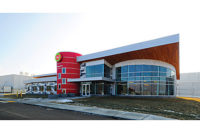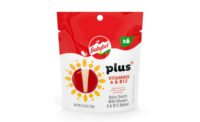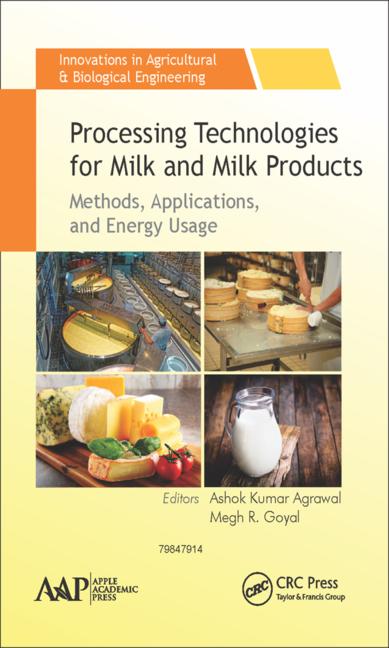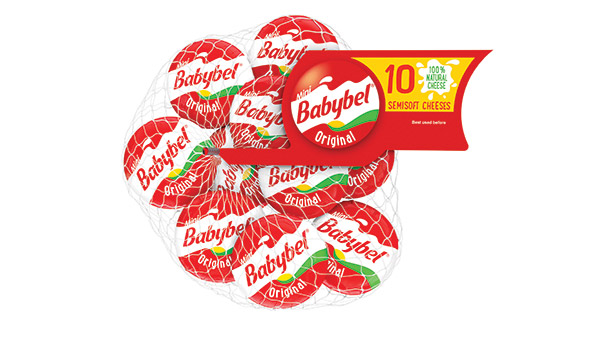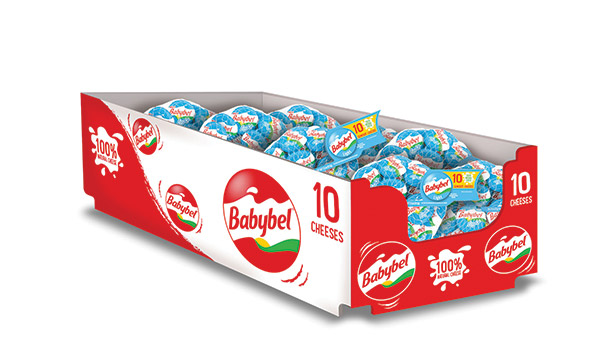Bel Brands has big plans for its Babybel cheese

Babybel cheese signatures are the mesh bag and the wax coating.

Bel Brands USA wants to move its Babybel cheeses from the grocer’s deli section to the dairy case.

Besides Babybel, Bel Brands’ brands include The Laughing Cow, Boursin and Merkts.





One of the oldest cheesemakers in the world is making a big bet on the United States. Paris-based Fromageries Bel, founded in 1865 by Jules Bel, built a facility in Brookings, S.D., specifically to manufacture Mini Babybel cheeses for the American market (see related article). At $140 million, it was the biggest investment the French cheesemaker has ever made, said Frederic Nalis, the president of Chicago-based Bel Brands USA and the CEO of Bel Americas.
Nalis joined Bel Group in 2003 from Procter & Gamble. He first served as marketing general manager for Bel International. From 2005 to 2008 he was the general manager for the Asia-Pacific division and from 2008 to 2011 he directed the Greater Africa division. Then in 2011, Nalis was named executive vice president of the Bel Group and CEO of Greater Africa. In 2013, he relocated to Chicago and Bel Brands USA.
Dairy Foods Editor-in-chief Jim Carper spoke with Nalis last December about the company’s plans for 2015 and the future. He said that if Bel Brands USA sales can increase from $350 million to $700 million in 10 years, “we will be satisfied.” Following is an edited transcript.
Dairy Foods: The new plant in Brookings, S.D., is a big step for Bel Brands in the United States, isn’t it?
Frederic Nalis: It is a big one indeed. It’s also a big step for the group, because we are talking about the largest investment that Group Bel has ever done in its history. It’s a $140 million investment.
Dairy Foods: Obviously you have some big plans or a lot of confidence in the United States with this product [Mini Babybel]. Tell me about that.
Nalis: We’ve been in the U.S. since 1970 but we really started to actually push our international brands, The Laughing Cow and Mini Babybel in the early 2000s. In the early 2000s we had the chance to ride on the wave of the South Beach diets for The Laughing Cow brand.
Mini Babybel, which was sold under the umbrella brand of the Laughing Cow, also benefited until we decided to push specifically for Mini Babybel around 2010. Since 2009, [business] has nearly tripled on Mini Babybel. Our business has accelerated again when we decided to de-couple those two brands. We market Mini Babybel under its own name, like we do in the rest of the world.
In 2013 alone the brand grew 24% in the U.S. And [in 2014] we are growing another 12%. The cheese market is quite mature in the U.S. and is growing from a volume standpoint between 1% and 2% every year. So we are by far outpacing the market growth rate on Mini Babybel.
This is why we [decided] to invest into further production capabilities. We already produced parts of our Mini Babybel in the U.S., in our Kentucky plant in Leitchfield [which also produces The Laughing Cow], but our capacity wasn’t sufficient, so we were obliged to import also from France [6 million pounds]. The balance of what we are selling in the U.S. [200 million pounds] we are producing in Leitchfield and Brookings.
These plants have been built to basically cater for the growth of our U.S. market but also to serve as a platform for export. We’re exporting to Mexico, and eventually if there is a trade agreement between Canada and the U.S., we might also export to Canada. We also might export to other South American countries.
We are confident in the potential of our brand here, because our penetration is still fairly low. We have a 9% penetration on Mini Babybel. Compared to other markets, like the UK and Canada, we are very far from our benchmarks. We are towards 20% or more penetration in those markets, which are snacking markets.
The U.S. is very much a snacking market. This is the largest snacking market in the world and this is why this product is working great here in the U.S. The Mini Babybel proposition is perfectly suited to the U.S. food habits. Even though our brand maturity is relatively modest compared to other markets around the world, the U.S. is already the largest Mini Babybel market for Bel worldwide.
Dairy Foods: What flavors of the Mini Babybel are the most popular in the United States?
Nalis: This is like everywhere around the world actually, so the Original flavor is the favorite. That’s an Edam-type. The light version is our second-best seller and then Mozzarella. Those are three varieties that are produced in Brookings today.
Dairy Foods: Would you say that the Mini Babybel in South Dakota tastes the same as what is made in France?
Nalis: You know, it will never be the same, because the taste also comes from the milk and the milk comes from what the cows eat. They might eat things a bit differently because in France our cows eat grass, and so they graze. But it’s extremely good. Our group manufacturing vice president said that the Mini Babybel light that we produce here is even better than what we produce in France. We’ve been really, really happy with the great quality that came out of the Brookings plant very quickly.
Dairy Foods: France has obviously an excellent worldwide reputation for cheeses. So I just wondered what you as a Frenchman think of this cheese made in the American Midwest.
Nalis: It’s really good. Mini Babybel I like very much, and I find that the Boursin that is produced here is also excellent. What is most important for me is that the American consumers like what we produce. This is a better guarantee of our future success than my personal preferences.
Dairy Foods: Who consumes Mini Babybel in the United States and when?
Nalis: There is never a 100% precisely defined target and moment of consumption. But we today have snacking consumption occasions, so it’s not a morning snack. It’s not an evening food. It’s really something which is consumed on the go. We have a mix of adults and children who are consuming this product. [Our] latest advertising campaign is a clear attempt to try to develop more the lunchbox usage.
We call the target “wholesome families.” Families that are interested in natural, great-tasting food. So that’s how we call the targets internally, “wholesome families.”
We are trying to [increase] our penetration of households. We are targeting a 15% penetration, which is the equivalent of what the largest snack cheese has in the U.S.
Dairy Foods: What are the competitive cheese products? Are they shreds? String cheeses? Slices? Blocks?
Nalis: This is a great question, but it’s a complex one to answer. When you look at snacking in the U.S., the number of things you can choose from is just incredible. I would say that snacking propositions that are savory are our competition.
String cheese would be one area which would be the closest to us. But what we’ve learned recently in our consumer work is that we as manufacturers can think about the cheese category, but consumers don’t think about that. So it’s really about share of stomach and share of appetite during the snacking moments. The first divider is sweet/savory. The savory snacks are really the competitive snack for a brand like Mini Babybel.
Dairy Foods: How can a cheese-maker convert a consumer away from a baked or a fried product to a dairy product as a snack?
Nalis: The first angle of course is going to be based on the nutrition qualities of our products. Versus tortilla chips, or chips in general, that’s probably the easiest angle. Dairy products have great qualities. In one portion [of Mini Babybel] you have four grams of protein. That’s about 8% of your daily recommended intake. You have something like 70 calories, and in the light version you have 50 calories.
Then of course, this is food so it needs to taste great, so the quality element is going to be key. The secret to having a viable business is to get the people to repeat, so they need to have a great product experience. They need to have a positive experience when opening our cheese. Then they need to be delighted when they eat it. So this is what is going to make this product either survive in a very tough U.S. competitive environment or decline.
Dairy Foods: Branded cheesemakers can outsource the production of their cheese to a third party. Why is it important for Bel Brands to manufacture its own cheese?
Nalis: [For Mini Babybel] it’s critical because the machines that we have developed are unique. And I know we are the only ones to manufacture a cheese like Mini Babybel today, a miniature, waxed natural cheese. We have some proprietary technologies in our production process, and it’s such that we don’t want to give that away. A lot of the Mini Babybel elements are patented and/or trademarked.
If you look into the DNA of our company, there are probably three characteristics. One is that we are the world champions of miniature cheeses. The second is that our model is a branded business model. Innovation and technology are factors that enable us to value our brands over time, so we want to keep tight control of innovation and even more than innovation, our unique production processes.
The third element is the fact that we have the portfolio of brands which is the most international in the industry.
Dairy Foods: Tell me about some of the other goals of Bel in the United States. I know you want to build up penetration of Mini Babybel. But you also have some other cheeses as well that you sell here.
Nalis: The U.S. industry is the No. 1priority for the group overall, in terms of profitable growth. This is based on the fact that we have a lot of potential with Mini Babybel, but we still believe that we have potential to develop The Laughing Cow brand, so this is going to be our second growth pillar. We have a third international brand in the U.S. called Boursin. We also have strong ambitions for this social snacking brand. We are preparing for a relaunch of this brand [in early 2015].
Then we have also a number of local brands, things that we acquired in the ‘90s. We have brands that are typically Midwestern [Kaukauna and Merkts]. We are a market leader in the refrigerated spreads business in the U.S. In that segment, we have 45% market share. We plan to accelerate the development of these brands. We are pushing the international brands. We are reinvesting quite heavily in the U.S., but also the local brands. We want to make sure we have a double-digit growth, which is far beyond the growth rate of the market.
Dairy Foods: What potentially could stop you from achieving this growth? What are some of the threats, either in the cheese industry or specifically to your company?
Nalis: The No. 1 threat is probably commodity prices because growth in the U.S. is expensive. Since we have a brand model, we invest quite a lot in marketing and sales, so we invest for our customers. Whenever cheese prices and milk prices skyrocket, this is putting pressure on our P&L.
And of course competition. The snacking market in the U.S. is extremely active, extremely competitive. There is a lot of innovation out there in the marketplace, so consumers are bombarded with propositions. If you want to grow 10% or more, it requires a lot of attention to execution. We need to gain distribution and be more visible in stores.
Dairy Foods: Are you in principally supermarkets and big box stores?
Nalis: At the moment we are distributed nationally on the grocery channel. We are also distributed at Walmart on a national basis and also in club. So those are three major channels and we are starting to have some wins in alternative channels, like convenience stores. We’re distributed at 7-Eleven. We also got our distribution in drug in 2014, so we are distributed at Walgreens. And we are discussing with the dollar channel. We still have a lot of progress to make in alternative channels.
Dairy Foods: What is your message to your customers? When you’re making a sales call and you want to acquire a new customer, how do you pitch Bel Brands and Mini Babybel cheeses to them?
Nalis: It depends on the customer. It depends what we are trying to target. One of the things that we inherited from the past is the fact that we were importing products, French products. We were small, so we were a deli proposition for a long time. My biggest hurdle at this stage is to transfer Mini Babybel from deli to the dairy case where families go shopping for their snacking cheese.
I need to convince my customers that the Mini Babybel cheese is the preferred cheese snack for wholesome families, and therefore I need to get my fair share of space in the snacking cheese section. That is my biggest challenge and that is probably my No. 1 pitch at this stage.
Dairy Foods: In the United States, do you sell Mini Babybel as an American cheese? Or a French cheese? Or neither?
Nalis: Neither. It’s Mini Babybel. Mini Babybel has its own personality. Maybe you need to have a look at the advertising. [A character in a funny voice] says: “There is nothing mini about me. I’m HUGE!” So it is a bigger-than-life character, you know.
Dairy Foods: Has anything surprised you since you’ve taken over the presidency of the company? Anything surprising about American consumers or their cheese habits?
Nalis: Not really. Before running this region I was running Africa for five years, and before doing that I was running Asia-Pacific. One thing which is quite striking here in the U.S. is the level of competition. It’s a very tough market. It’s extremely competitive and competition is beyond your own product category. The fight for shelf space is tremendous. It’s also a market which is not as concentrated as Europe can be from a trade standpoint, so gaining the right distribution and merchandising is slower. But it makes it exciting as well.
Looking for a reprint of this article?
From high-res PDFs to custom plaques, order your copy today!






